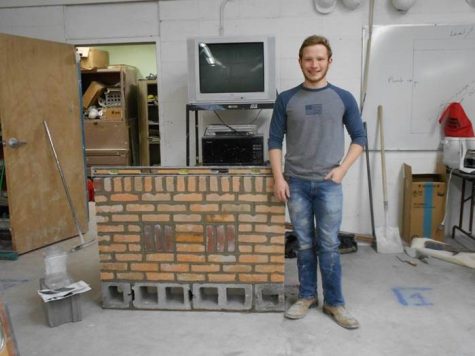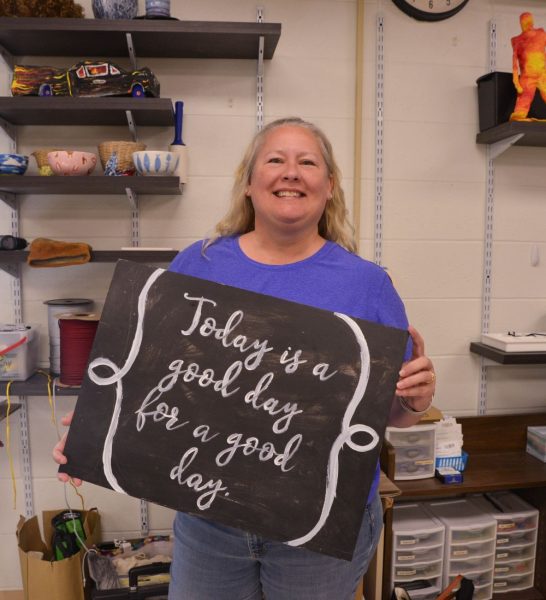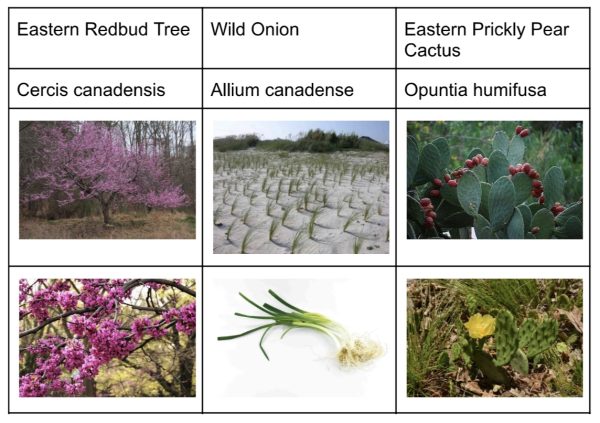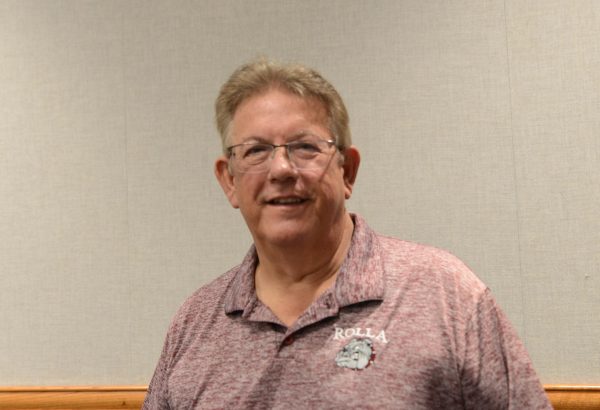So, you’re addicted. Now what?
Where to go when there’s nowhere to turn
As the drug crisis in Missouri continues to rise, the epidemic is reaching children younger and younger. Approximately 159,000 opioid related deaths were reported in 2016 according to the National Institute of Drug Abuse. As a teenager, speaking to parents about any problem or mistake can be a daunting task, especially drug addiction. Once addicted, taking a step in the right direction is unclear when support is lacking.
Prevention Specialist Jessica Lucas suggests speaking to a school counselor when seeking help if one does not feel comfortable telling a guardian.
“I understand that that is not always comfortable to do, but that is really what your school counselor is there for. they are trained to not only help you academically but to help you personally,” Lucas said.
If a student is already addicted, they usually do not want to go to the school in fear of being kicked out of sports or expelled. However, Lucas knows that counselors just want “you to be happy and healthy and thrive.” That means helping the student find resources necessary for them.
Rolla High School counselor Liz Pogue encourages all student to seek help if they are struggling, and coming to see her is always welcome. However, she warns that if a student has any substances on them or are currently under the influence, she cannot legally keep that to herself, she will have to inform someone.
Reaching out about addiction or specific past incidents are not out of the scope of what students can speak to school counselors about though. As a counselor, Pogue would first want to find out who a students “team” is. This would be the adults in their lives that they trust and who support them. Counselors are only during the school day, so Pogue looks for the other adults in their lives to gather a support system.
If school is still too difficult for them to go to, Lucas recommends reaching out to their family doctor. Minors are able to request to speak to their doctor without their parents present in order to discuss their addiction because at that point, “it is no longer about prevention, it is about treatment and recovery.”
Once a student takes the step of addressing their addiction and seeking help from an adult, the reaction of that adult is vital. Reacting with anger could push them back to where they were, not wanting help.
“A parent’s appropriate reaction would be to listen and then take you to your family doctor and discuss it. This is a very hard conversation for parents to have, and it is even harder for the student to have with them. Nobody is perfect and nobody is going to react perfectly to this conversation,” Lucas said.
She encourages the student to remember that they are just people and if they overreact, it is not because they dislike them now, it is because they care and want to do what is best. Although there are options speaking to someone besides their parents, eventually a minor’s parents will be informed because drugs are illegal and a danger to the child. While seeking treatment, guardian consent is also required.
“Places like pathways Southeast Missouri Health and Pathways are great places, but you do need a guardian. That is for your safety as well as for the companies safety. However, your family physician can refer you out for treatment, so that makes the pathway a little straighter and having to find it on your own,” Lucas said.
In conjunction with guardian consent, rehabilitation and behavioral facilities can charge thousands of dollars for treatment. Many places do take insurance, and Your Community Health Center has also started a sliding scale system on payment. This means that people will pay different amounts based on their income.
“Because the health center is a federally qualified center, we do have some opportunities to assist individuals who don’t have insurance or don’t have insurance that covers these services. We have grants and additional funding to help those people out. Along with that, all of our medical and dental services on a sliding scale,” Rural Opioid Response Planning Project Director Felisha Richards said.
Your Community Health Center provides medical assisted treatment for individuals addicted, and can be as easy as calling or coming in to ask for help. Anyone 17 years old or older can receive treatment without a parent or guardian. If younger than that, they will be referred to the Compass Health Navigation Program. Once reaching out, employees will work out treatment, which begins with medication.
“The concept is to do medication first to help that individual through the detox process. Instead of forcing a full-on detox, we will start some medication when the withdrawal starts to hit. This is so they don’t feel that 100 times worse than the flu feeling,” Richards said.
Detoxing from drugs can cause intense nausea and diarrhea among other symptoms for several days. After days with no relief, many people leave the facility they are receiving treatment from and relapse just to feel better from the withdrawals.
“This medication first model allows those medications to be implemented so that way they are not going through that severe withdrawal that causes them to go back to using,” Richards said.
Once that is done and patients begin to clear their head, wraparound services begin. They have case managers and counselors that can help put them into support groups and one on one therapy, as well as helping out with employment and housing issues if needed.
Even with relapses, Richards assures that they will simply have a conversation to reassess what is going on and determine a new plan for tackling their recovery.
Relapse is actually more common than not, and has been included in the process of recovery so more people understand that it is a normal part of the process. Once on the road to recovery, it is difficult to stay on track, but Lucas feels it is necessary to change one’s environment.
“If you are in with a group of people who all do drugs or even just smoke, you have to find new friends. That is so scary. It is terrifying to have to go out and find new people and try to like new people. At this age you are just trying to solidify who you are and when you have to find a whole new group of people, it is difficult. But it is important to your recovery to change who you hang out with,” Lucas said.
As someone continues past addressing their addiction, Lucas also knows they have to find why they started using in the first place. If they used to cope with anxiety or depression, they must develop new coping mechanisms that do not involve drugs.
“Things like meditation, exercise, journaling are all ways to cope but they are healthy. There is a really great saying that you don’t ever get rid of an addiction, you just replace it. Ideally you will replace an unhealthy addiction with a healthy one,” Lucas said.
At Your Community Health Center, their recovery is individually based, depending on where the person is at and their needs. Richards knows recovery is lifelong and their medication management can be lifelong.
Before any of the addiction begins, or even in the early stages, Lucas urges students to talk to their peers about what is going on in their lives.
“Early intervention means better recovery results. Even if you are not using, talk to the people you know because you know them better than us. You are the ones who spend the time with them,” Lucas said.

Those playing tennis at the courts in town have probably noticed the pavilion being built over the past year. However, most students have not realized...








